World Hearing Day: 3 March, 2024
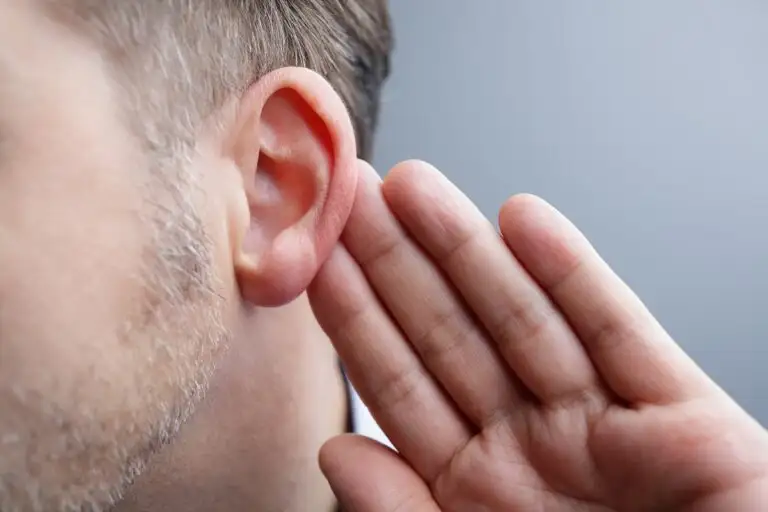
World Hearing Day 2024: A good hearing ability helps you to connect with people – listen, engage, observe while hearing loss may have an adverse impact on quality of life. While we may not consciously pay attention to it and at times neglect it, but our hearing health is quite significant for our overall well being. A good hearing ability helps you to connect with people – listen, engage, observe while hearing loss may have an adverse impact on your quality of life, to the extent that it may affect one’s mental health. When you lose connection with people a loneliness envelops you making you anxious and prone to depression. World Hearing Day is observed every year on March 3 to raise awareness on ways of preventing deafness and hearing loss and promoting ear and hearing care across the world. WHO hosts an annual World Hearing Day event at its headquarters in Geneva. The World Hearing Day 2024 with the theme “To hear for life, listen with care” will focus on the importance and means of hearing loss prevention through safe listening. On World Hearing Day 2024, WHO will focus on the importance of safe listening as a means of maintaining good hearing across the life course. “It is possible to have good hearing across the life course through ear and hearing care. Many common causes of hearing loss can be prevented, including hearing loss caused by exposure to loud sounds ‘Safe listening’ can mitigate the risk of hearing loss associated with recreational sound exposure,” according to WHO. Tips to Prevent Hearing Loss Dr. Sheetal Radia, Consultant Otorhinolaryngology and Head & Neck Oncosurgery, Wockhardt Hospitals, Mira Road Source: https://www.hindustantimes.com/lifestyle/health/world-hearing-day-2022-expert-offers-tips-to-prevent-hearing-loss-101646290709836.html
What is celiac disease, the condition that Miss Universe 2021 Harnaaz Sandhu suffers from?
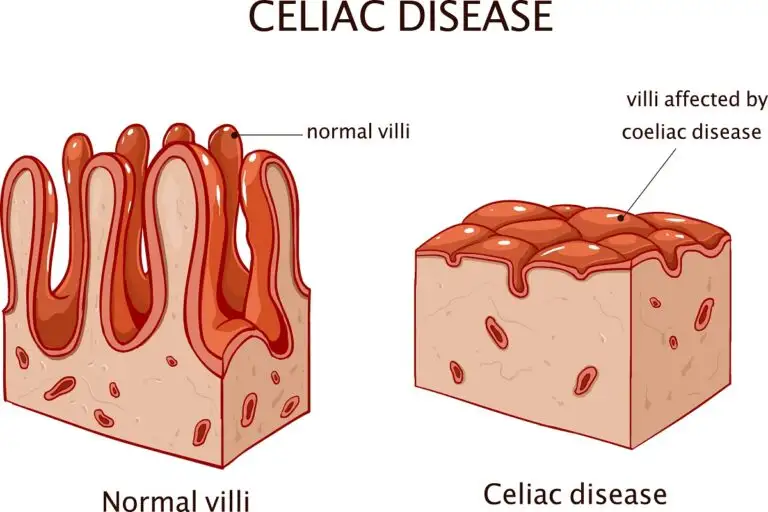
Miss Universe 2021 Harnaaz Sandhu who has been on the receiving end of some nasty comments by netizens due to a slight weight gain recently shared with media that she’s suffering from celiac disease, an immune reaction to eating gluten, a protein found in wheat, barley, and rye. She said during a Chandigarh event “nobody knows about my celiac disease. That I can’t eat wheat flour and many other things.” Here’s all you want to know about celiac disease, its symptoms, causes, and if it could cause weight gain or weight loss in some people. What is Celiac disease “Celiac disease is a condition that makes it hard for your body to break down gluten. Gluten is a protein that is found in wheat, rye, barley and oats. Gluten is found in foods like bread, pasta, pizza, and cereal,” says Dr Honey Savla, Consultant Internal Medicine, Wockhardt Hospital, Mumbai Central. According to National Library of Medicine, Celiac disease (CD) is a systemic, immune mediated disorder that occurs in individuals with a genetic predisposition in response to ingestion of dietary gluten. It is a common but markedly under-diagnosed condition. It may lead to serious long-term complications if untreated. “Celiac disease can be termed as a worrisome digestive and immune disorder that tends to damage one’s small intestine and impacts your overall well-being. This disease can get triggered by having foods that contain gluten. It can lead to serious digestive problems and keep your body away from getting all the nutrients it needs. As time passes, the small intestine’s lining will get damaged and there will be a malabsorption of nutrients. You will be shocked to know that there is no permanent cure for celiac disease, but following a strict gluten-free diet can help those with this disease manage the symptoms and promote intestinal healing,” says Dr Roy Patankar. Symptoms of celiac disease Dr Honey Savla says that in people with celiac disease, gluten damages the intestines and the following symptoms can be observed: It can be confirmed by blood test and duodenal biopsy,which will be sent for histopathology. Treatment includes compliance with gluten free diet and replacement of vitamins which arent absorbed. Dr Patankar, however, says the symptoms of celiac disease can vary from person to person. “The common signs that one may notice are diarrhoea, fatigue, weight loss, bloating, glass, stomach pain, nausea, vomiting, and even constipation. Moreover, some adults will also showcase signs like anaemia, mouth ulcers, headaches, itchy skin, joint pain, and even loss of bone density. Also, some people with this disease will have no symptoms,” says the expert. How to treat celiac disease “In order to treat celiac disease, try to follow a gluten-free diet. An expert will help you to know what you should eat and delete from the diet. Remember to remove foods and drinks that contain gluten,” says Dr Patankar. “Try to eat fruits such as oranges, bananas, apples, berries cruciferous vegetables, including cauliflower, broccoli, greens, spinach, kale, potatoes, corn, bell peppers, mushrooms, onions, carrots, peas, chickpeas, lentils, gluten-free whole grains, and dairy products. Avoid wheat, white bread, soy sauce, barbecue sauce, salad dressings, marinades, cakes, cookies, pastries, pancakes, waffles, noodles, energy bars, beer, puddings, and instant dessert mixes,” adds the expert. Do people lose or gain weight when suffering from celiac disease? Although celiac disease is associated with losing weight and being thin as it damages the lining of the small intestine, causes malnutrition and malabsorption, the disorder may also lead to weight gain in some casues. As per a study published in the Journal of Clinical Gastroenterology, 15.2% of adults with celiac disease were overweight when they were diagnosed and 6.8% were obese. Together, these outnumbered the 17.3% who were underweight. It shows that it is not rare for a person with celiac disease to be overweight. Source: https://www.msn.com/en-in/health/medical/what-is-celiac-disease-the-condition-that-miss-universe-2021-harnaaz-sandhu-suffers-from/ar-AAVKGAr
Irritable Bowel Syndrome: 6 lifestyle changes to manage the intestinal disorder

Irritable Bowel Syndrome (IBS) is a disorder of digestive system that causes disturbance in the bowel habits of affected people. Here’s how you can manage it. Irritable Bowel Syndrome (IBS) is a disorder of digestive system that causes disturbance in the bowel habits of affected people and may also cause issues like pain, cramping, heaviness or bloating in the stomach. Disturbance in bowel habits can mean any of these – change of frequency of stools, change in its form or need for excessive straining. It can range from diarrhea to difficult constipation. More common in women than men, IBS may be managed effectively by making certain lifestyle modifications and controlling triggers like stress. What causes IBS “Our digestive system similar to our brain, has its own nerves and signal transmitters across the nerves to send messages within its component, which is why it is also called the second brain. IBS is a disorder which arises when there is discordance between the axis of brain- the gut nerves and the gut proper. Exact cause for this disturbance is not known but triggers like stress, infections, medications, hormonal changes and type of food have been well documented,” says Dr Shankar Zanwar, Consultant Gastroenterologist, Wockhardt Hospital, Mumbai Central. Symptoms of IBS Diarrhea, constipation, sense of incomplete stool evacuation which is a feeling like you still need to poop after you just did, gas, pain in abdomen, feeling of bloating in abdomen, cramping in abdomen are some of the symptoms of the disoder. How to cope with IBS Dr Shankar Zanwar suggests lifestyle modifications that can help cope with IBS. 1. Stress busting: Stress if one the biggest cause for triggering IBS. Engaging yourself in activities which you relish meaning pursuing your hobbies is one of the easiest stress busters. It can take your disturbed mind away from the gut. As mentioned above IBS is the disease of disturbed gut-brain axis. 2. IBS diary: It is always a good idea to maintain diary which records what you eat, how you feel after any unusual or specific food items and the trend of your bowel symptoms which can include stool frequency and stool form. This will give both the patient and caregiver a clearer idea regarding the planning for better treatment and diet. 3. Food intolerance: There is quite a hype surrounding ‘food intolerance tests’ these days. A simpler way to cope with IBS is to maintain the food diary identify your self if any unusual food has triggered your symptoms and eliminate it from the diet. The common culprits are dairy products, wheat, some fruits (apples, mangoes, cherries, watermelon), onions, cabbage, beans and nuts. 4. Diet: Specific diet varies from person to person and depends also on the predominant type of IBS. If you have constipation-type IBS, a high fibre diet of whole fruits (with skin when edible), legumes, prunes and cereals is helpful. Patients with diarrheal-type IBS should avoid the items mentioned to manage constipation-type IBS along with dairy products. They can switch to non-wheat cereals, non-dairy milk like soy milk or almond milk etc. Changing your breakfast timing to before passing stools can also improve constipation-type IBS as it gives a kick to your gut to expel the contents. You should drink ample amount of water that will keep your stool coming out easily when you are constipated and avoid dehydration if you have diarrhea. 5. Exercise: Abundant researches are now available to show that exercise decreases symptoms of anxiety and depression and along with it also improves symptoms of IBS. You should target 15-30 minutes of simple exercise at least 5 days per week. 6. Unhealthy habits: Stopping alcohol and smoking will definitely improve your gut symptoms. Excessive coffee and tea can worsen diarrheal type constipation and add on to heartburn symptoms. Dr Shankar ZanwarConsultant GastroenterologistWockhardt Hospital, Mumbai Central Source: https://www.hindustantimes.com/lifestyle/health/irritable-bowel-syndrome-6-lifestyle-changes-to-manage-the-intestinal-disorder-101648792969795.html
Rare surgery helps 22-year-old breathe easy

In a medical feat, surgery was performed in the city to repair windpipe of a 22-year-old girl suffering from an extremely rare medical condition called ‘Multi-level tracheal and bronchial stenosis’. Dr Sameer Arbat, who repaired the windpipe, told TOI that the girl complained of shortness of breath and fall in oxygen levels. She had been undergoing treatment for bronchial asthma for the past one year. “A CT scan of the thorax revealed ‘Multi-level tracheal and bronchial stenosis’. It means narrowing of the windpipe at different levels which was not letting her breathe,” said Dr Arbat. Multi level stenosis or narrowing of airway is a very rare condition encountered in less than 1% of world population. In this girl’s case, the trachea or main windpipe had only a pin hole opening at the level of narrowing, thus obstructing 95% of air supply to both the lungs. Complicating the condition was 70% narrowing of right lung windpipe and 40% narrowing of left lung windpipe. “The narrowing had also led to stagnation of secretions in both lungs, causing pneumonia of right and left lung. Without non-invasive ventilation support, she was unable to breathe,” said Dr Arbat. The team of doctors decided to perform procedure of multi level tracheal dilatation and Y stent installation inside the windpipe. The surgery was conducted at Wockhardt Hospitals. The three-hour long procedure started by opening up the pin hole narrowing by cutting it with heated knife. Multiple sessions of sequential ballon dilatation were performed to open the narrowing at three different levels. Dimensions of the patient’s windpipe was measured and a silicone Y stent was customised. The stent was deployed to keep the windpipe open and prevent it from narrowing again. The patient was discharged after reporting relief from complaints and is keeping healthy even one month after the procedure. Tracheal stents are rarely used and are still undergoing evolution in terms of sizes and materials. According to the records with lung specialists’ association, it was the first case of Silicone Y stent installation in Central India, and only the third in the country in the past three years. “I have performed several metallic Y Stent placements in patients of lung cancer but this was the first Silicone Y stent deployed in a young patient with benign condition,” said Dr Arbat adding that it could not have been possible without the support of anaesthetist and OT team at Wockhardt Hospitals. Dr Sameer Arbat,Wockhardt Hospitals, Nagpur Source: https://timesofindia.indiatimes.com/city/nagpur/rare-surgery-helps-22-year-old-breathe-easy/articleshow/90577972.cms
Patient with Three 100% Artery Blockages Treated by Angioplasty
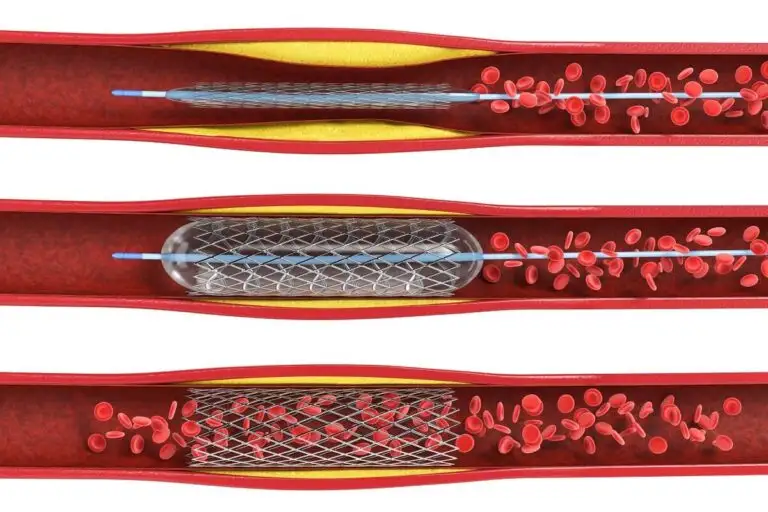
A patient with 100% blockage in three arteries was treated by Angioplasty in Wockhardt Hospitals, Nagpur instead of CABG surgery. The patient from Jabalpur had three 100% blockages in coronary arteries and was advised to undergo an open heart surgery by three doctors whom he had consulted near his hometown. All the doctors suggested that surgery is the only way to treat him. However, the patient was not willing for surgery and wanted to undergo an Angioplasty. He, then, consulted Dr. Nitin Tiwari, Sr. Consultant- Interventional Cardiology about whom he had received a good feedback in the region. Dr. Nitin Tiwari examined the patient and performed the procedure of Angioplasty. The procedure was very complex and needed high skills and three major arteries were blocked. Dr. Tiwari inserted five stents to remove the calcified old occlusion in this patient’s arteries. Patient’s all three arteries had CTO (any block which is 100% and is atleast there since more than 3 months). “I have used Japanese technology of treatment in this patient. For such cases, the success rate is only 50%. However, using the technique I followed, increases it to 70-80%”, said Dr. Tiwari. “When this patient approached me, he was very skeptical as all the doctors whom he had consulted before me had advised him to undergo surgery. But, as the patient was not willing for the same, we opted for this method and treated him successfully”, he added. The level of contrast given to such patients is also to be monitored to manage the patients. Third artery was kept for angioplasty at a later date as the contrast limit was reached. It was treated later and ultimately, the patient was successfully discharged. Dr. Tiwari has been trained in Japan. The reason why angioplasty has progressed more in Japan is because of the notion that they believe soul goes out when the chest is opened for surgery. Hence they prefer non-surgical techniques like angioplasty. Dr. Nitin TiwariSr. Consultant – Interventional CardiologyWockhardt Hospitals, Nagpur To book an appointment call: 0712-6624100 Source: https://thelivenagpur.com/2022/03/29/instead-of-cabg-patient-with-three-100-artery-blockages-treated-by-angioplasty-in-wockhardt-hospital/
How Mother’s Mindfulness Impacts Child

Mother mindfulness programs improve stress response in infants, a study by The University of California, San Francisco, USA Name of study: Mother mindfulness programmes improve stress response in infants By who and where: University of California, San Francisco, USA What does it say? ✥ It has been found that mindfulness programmes reduce depression and stress among pregnant women. ✥ Infants, whose mothers attended a mindfulness-based programme, showed a better mental state and a healthier stress response at six months. ✥ These offsprings had a greater ability to bounce back from adversity and had recovered quickly from surgery or illness. FORMindfulness is hugeMindfulness helps both the expecting mother and her unborn child. The psyche of any individual is a product of their genetic makeup, environmental factors, emotional and behavioural parameters. Each of these plays a part in programming the emotional and behavioural responses of a baby. Hence, any peace-inducing practice that can be undertaken by pregnant women should be prioritised. It will enhance the quality of life of her baby for sure, while also bringing stability to her mind. AGAINSTGenetics call the shots The mental health of a child is not necessarily dependent on the mental health of the mother carrying it in her womb. There are also those women who are not mentally distressed who give birth to babies who are mentally unstable. An important deciding factor is a stress that the baby receives during labour. Sometimes prolonged labour of the mother can cause cerebral hypoxia in the child, which can also lead to a developmental delay. Proper nutrition is important as malnourished women are at a higher risk of giving birth to a retarded child. Dr Indrani Salunkhe Consultant Gynaecologist, Wockhardt Hospitals, Mumbai Central Source: https://www.indulgexpress.com/msociety/2022/mar/27/how-mothers-mindfulness-impacts-child-39845.html
Stroke survivor develops ‘black hairy tongue’; know all about this condition from experts
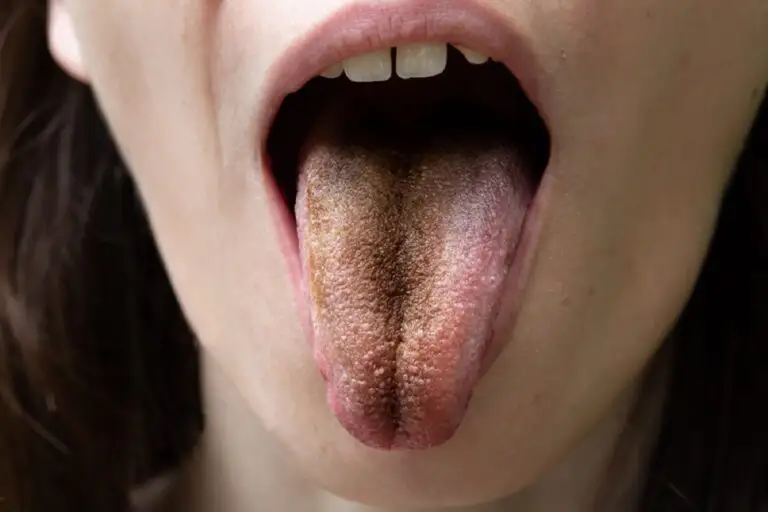
Black hairy tongue is a common condition that happens due to poor dental hygiene says experts, and it is usually harmless. A thick black ‘hairy’ coat on tongue can be really scary and make anybody wonder about the root cause of the problem. A man in his 50s who suffered from stroke three months back and was on a liquid diet apart from some medications, developed this harmless condition. According to reports, the patient was taken to the hospital after his black tongue developed yellow stains as the liquid food got stuck in the coat. However, the solution to his trouble turned out to be quite simple and his tongue cleared up within 20 days. Black hairy tongue is a common condition that happens due to poor dental hygiene says experts and it is usually harmless. It is mostly painless and is common in people above 40, those who smoke and drink, consume excessive amounts of coffee, have malignancy or are on certain medications. Usually, the condition goes away in its own, but in case it’s not, one must consult an expert. What is black hairy tongue “Black hairy tongue is a relatively common disease that classically manifests as a black and hairy appearing lesion on the dorsum of the tongue arising from abnormally hypertrophied and elongated filiform, says Dr Sushma Yadav. What exactly happens to your tongue in this condition “In this condition, the front 2/3rd of the tongue which has this conical projections, become enlarged in size and become brownish yellow and black. The tip of the sides of the tongue often don’t have this as much. The main problem is its unsightly experience and the patients might also complain a burning or tickling sensation on the tongue, very bad breath and nausea,” says Dr. Sravya C Triperni. Symptoms Blackish discolouration of the tongue, dryness, halitosis or bad breath, metallic taste in mouth. Treatment Though the condition usually recovers on its own in some time, one has to identify any drug that might be causing it. “Avoid smoking and excessive alcohol. Always encourage very good oral hygiene and gentle tongue scraping with a soft toothbrush and a solution containing 3 per cent hydrogen peroxide will help apart from antiseptic mouthwash. If there is an associated fungal agent given then that also helps,” says Dr Triperni. “Treatment includes gentle debridement in the clinic, maintenance of good oral hygiene, avoiding dry mouth by keeping tongue moist in bedridden patients, appropriate use of mouthwashes. Fungal infection or Carcinoma tongue can be a differential diagnosis, so a biopsy may be done in certain patients. Smoking and alcohol use are predisposing factors,” says Dr Shraddha Despande, Consultant Plastic and Reconstructive Surgeon, Wockhardt Hospital. Dr Shraddha Despande, Consultant Plastic and Reconstructive Surgeon, Wockhardt Hospital. Source: https://www.hindustantimes.com/lifestyle/health/stroke-survivor-develops-black-hairy-tongue-know-all-about-this-condition-from-experts-101647266103259.html
A Psychiatrist Explains How Depression Affects Sexual Health & the Ways to Deal with it

Depression can affect all aspects of life including sexual health. Both men and women can experience sexual difficulties when they go through depression. Depression causes low mood, a general disinterest, and a feeling of anhedonia—an inability to enjoy things. These low feelings also lead to an inability in being aroused, maintain arousal (erection), and inability in achieving orgasm. We reached out to Dr. Sonal Anand, Psychiatrist at Wockhardt Hospitals in Mumbai, to elaborate on how depression can affect sexual health. Read on. Negative Emotions Affect Libido Depression can cause low self-esteem and diffidence, leading to difficulties in expressing thoughts related to physical troubles and mental issues. It can cause one to distance themself from their partner, and the relationship difficulties could end in sexual problems. Negative emotions make it difficult to focus on physiological needs and can lead to decreased libido. Some partners may misinterpret the situation, making way for further distancing. Anxiety-related to sex can also develop further problems. Being tired easily could be a prominent feature of depression. This low energy level can cause low libido and erection difficulties as well. Women can have problems with lubrication and achieving orgasm. Being forced upon can lead to further stress and more anxiety. Depression and Other Health Conditions Can Co-exist Sometimes depression can coexist with other physical conditions that can cause sexual difficulties. Hypothyroidism and low testosterone are some of these conditions and they should be screened. Sometimes medications can also have adverse effects on sexual health. Some antihypertensives and antidepressants are known to have sexual side effects. These issues can be discussed with the healthcare provider. Sexual Health Problems Can Be Cured It is important to make sure that the partner understands depression and can be non-judgmental about it. A problem-solving attitude can help reduce the burden on the depressed patient. Sexual issues related to depression are not permanent; they can be treated with the right approach. When depression is treated, sexual problems arising due to it also heal, so the concept that sexual problems stay for life or can’t be treated is not true at all. Some antidepressants can worsen sexual problems but if discussed beforehand, the treating psychiatrist can start medication that does not affect one’s sexual life. Handle with Care and Empathy Sexual problems due to depression need to be dealt with care and empathy. Emotional support and empathy are key roles and can help strengthen the relationship. Sexual health is often kept to last and not really thought about. Frustration stemming from sexual problems can worsen depression and lead to further problems. It is important to discuss all aspects of life during depression and talk about it without feeling uncomfortable. Education and self-awareness can help in improving sexual health and quality of life for someone diagnosed with depression. Dr Sonal Anand, Psychiatrist Wockhardt Hospitals, Mumbai Source: https://www.idiva.com/health-wellness/mental-health/depression-and-its-effect-on-sexual-health/18031650
Doctors Saved 24 years Old in a Highly Skilled Procedure
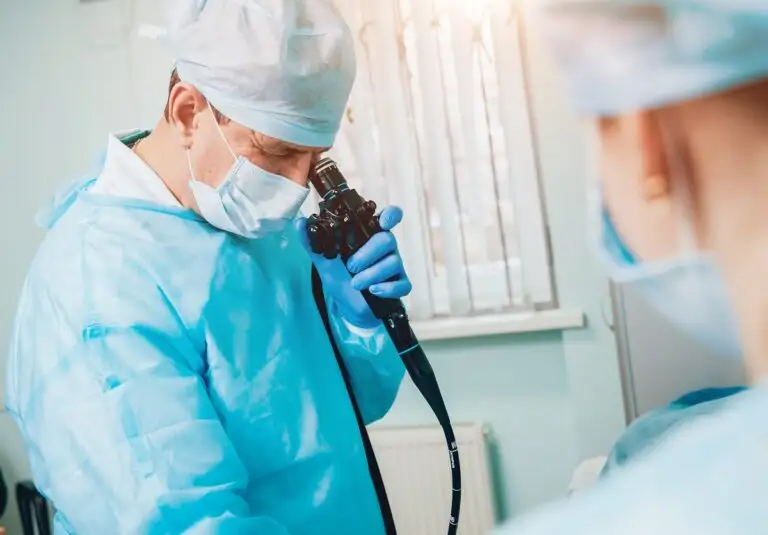
Opted for the endoscopic procedure instead of surgery In a highly skilled and complex procedure, the life of a 24-year-old patient was saved in Wockhardt Hospitals in Nagpur. After a road accident, the patient had a ruptured Oesophagus (food pipe), a fracture in the facial bones & skull. Dr Piyush Marudwar, Consultant- Gastroenterology, who was primarily treating the patient, repaired the ruptured food pipe. Dr Rahul Zamad, Consultant- Neuro Surgery, operated on the damaged skull bone and Dr Parikshit Janai, Consultant- Plastic Surgery, repaired the damaged facial bones. The patient hailing from Jabalpur was brought to the emergency department of Wockhardt Hospitals where he was initially stabilised by giving primary care. When he came to Wockhardt Emergency room, he was not completely conscious, his O2 level was low. He had a head injury with bleeding from the nose, convulsions and vomiting. Due to a rupture in the food pipe, air and fluid leaked into his chest cavity which further got infected. He was started on O2 support and other supportive care and was admitted under Dr Piyush Marudwar. The same morning Dr Marudwar did UGI endoscopy and site of perforation in Oesophagus using the life-saving, advanced procedure and the latest technique called Full Thickness over the scope Clipping and sealed the perforation. This case was more challenging as the site of perforation was very high up in Oesophagus. Major Surgery was avoided using this latest endoscopic technique. The next day Using a CT scan, it was confirmed that perforation was sealed completely, so he was started on an oral diet. Tricky Facial bone Fracture Surgery was done by Dr Parikshit Janai, to avoid facial deformity in a young boy of 24 years old. Dr Rahul repaired the skull base using innovative endoscopic skull base repair. The patient also had Meningitis (infection of brain coverings). Meningitis was treated using Epidural and Intravenous antibiotics with the help of Dr Vaibhav Agrawal who is a consultant Physician and Intensives. In good centres across the world Survival rate with this type of meningitis is only 20-30 %. This patient recovered from all of this and was discharged successfully from the Hospital. Dr Piyush MarudwarConsultant- GastroenterologyWockhardt Hospitals, Nagpur
Woman suffering acute headache diagnosed with brain tumour

Acute headache, which does not get cured by painkillers intake, could be a sign of brain tumour. This has been revealed in a case study of a 36-year-old woman, presented by Mumbai’s Wockhardt hospitals. Mitasha Agarwal (name changed), a resident of Jogeshwari, Mumbai, housewife and a mother of two children, was leading a normal life until she experienced an unbearable headache, which required hospitalisation at a hospital recently. The doctors instituted first aid which helped her achieve some relief. However, after some time the headache again started and made the patient’s life tougher as she could not do her daily chores. When the woman was taken to the hospital, she was diagnosed with hemangioblastoma, a rare benign brain tumour that starts in the cells that line the blood vessels in the brain, spinal cord and brainstem. The woman has the family history of hemangioblastoma. Doctors at the hospital successfully managed to remove the tumour from a critical part of the brain which controls all vital functions for life. This area has breathing and heart control and all connections from the entire body going up and down. The size of the tumor was around 2×2 cm in dimensions. She was discharged home a few days back. She was aware about this disease as her nephew was operated for the same issue just a year back and cousin three years ago both much younger to her. One sibling had died in the past and knowing was a nightmare for the entire family. By now all family members were aware and knowledgeable about this disease. Dr Vinod Rambal, Neurosurgeon, Wockhardt Hospitals, said, “On arrival in an emergency she was complaining of severe headache and was not able to balance herself. As the diagnosis was already evident, they hardly required any counselling because of past experience with the hospital and the surgeon.” Dr Rambal said that their comfort level for institutions and surgeons was already established. She was relieved of her symptoms and returned home quite early. He added that this disease is a benign disorder called syndrome meaning more than one part of the body can get affected so it is for us to do a full body check-up and establish the other components of syndrome. “Operation at this location is full of challenges and requires good infrastructure and experience on the part of the surgeon. Once the tumour is successfully removed it is a cure for the individual, though they need regular follow up,” Dr Rambal added. Dr Vinod Rambal, Neurosurgeon, Wockhardt Hospitals Source: http://www.drugtodayonline.com/medical-news/review/15044-woman-suffering-acute-headache-diagnosed-with-brain-tumour.html






